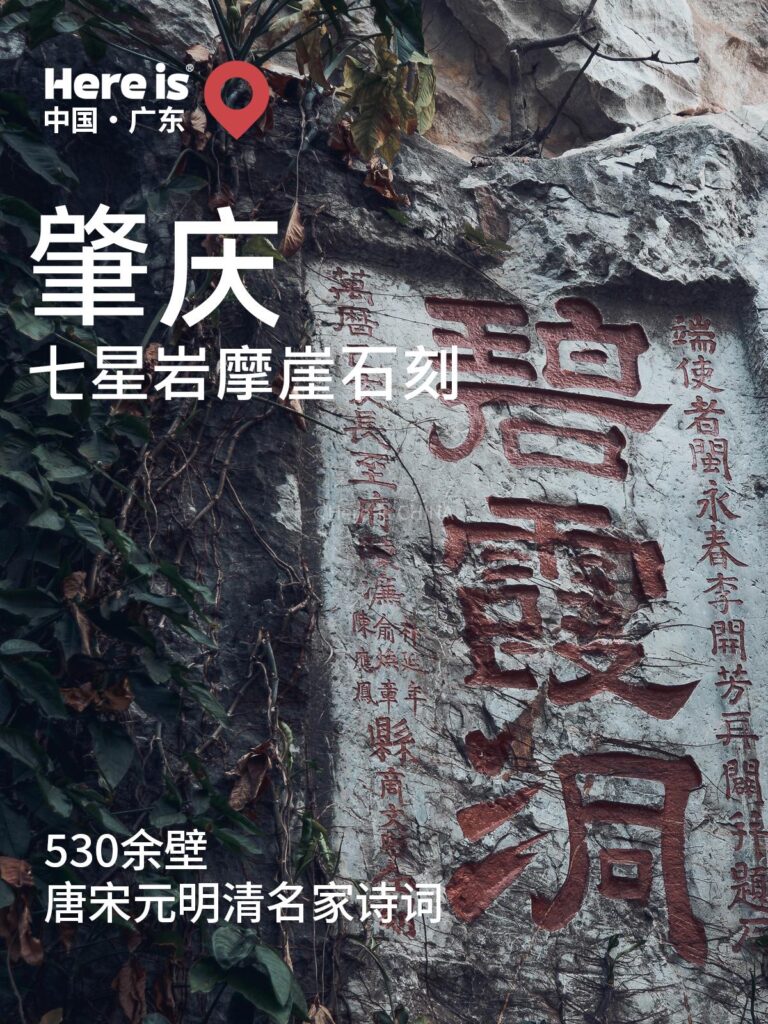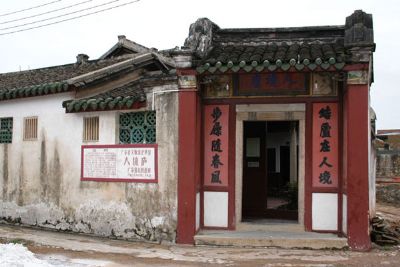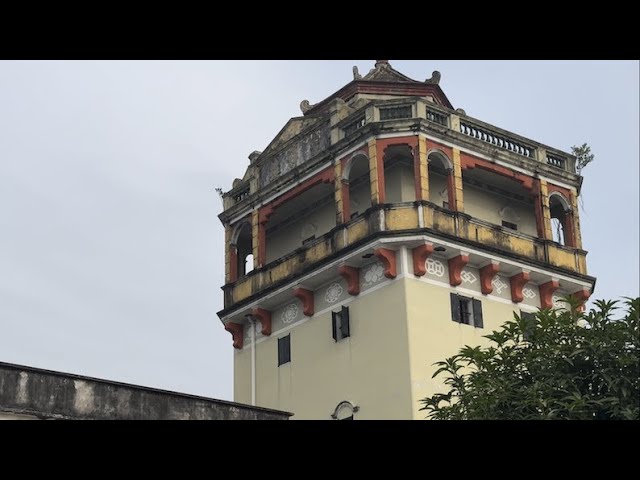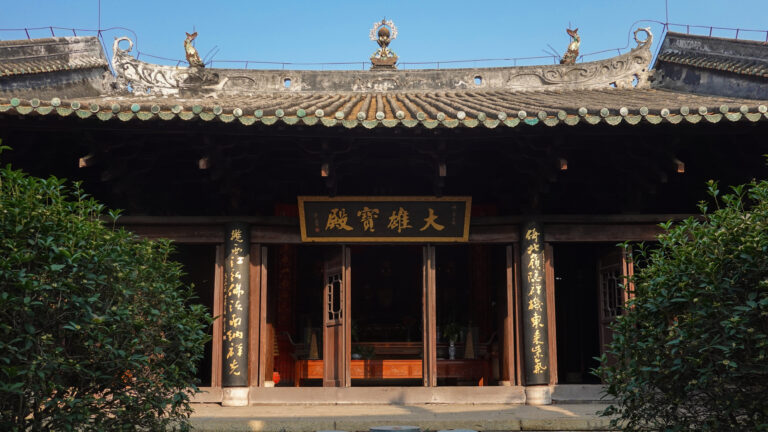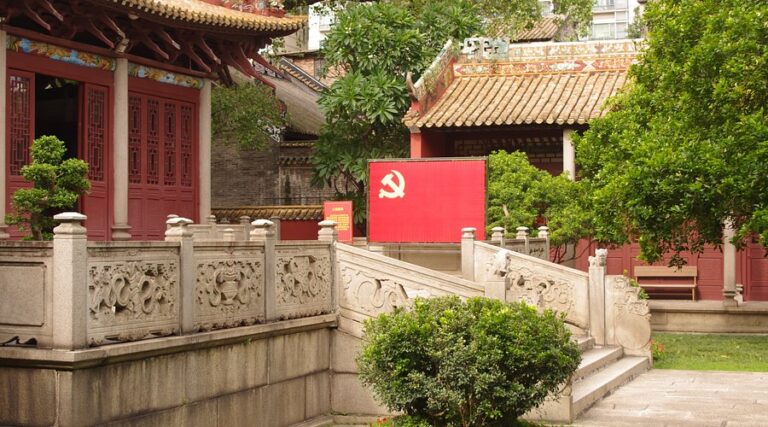Discover the Hidden Gem: Exploring Jiangmen Chenbaisha Ci in Guangdong
An Essential Guide to Visiting Jiangmen Chenbaisha Ci
In This Guide
- An Essential Guide to Visiting Jiangmen Chenbaisha Ci
- The Rich History of Jiangmen Chenbaisha Ci
- Main Highlights: What to See at Jiangmen Chenbaisha Ci
- Planning Your Visit: A Practical Guide
- Tickets, Hours, and Booking
- How to Get There
- Local Cuisine and Accommodation
- Frequently Asked Questions
- Final Thoughts on Your Trip
Nestled in the heart of Jiangmen, the Chen Baisha Memorial Hall stands as a testament to the rich cultural heritage and historical significance of the region. This memorial is dedicated to Chen Baisha, a prominent figure revered as one of the leading scholars of the Ming Dynasty, and affectionately hailed as “Mr. Baisha” by later generations. His contributions to Neo-Confucian philosophy have left a profound impact on the intellectual landscape of Lingnan, making this site not just a museum, but a pilgrimage for those interested in Chinese philosophy and history.
Visitors to the memorial are greeted by the striking architecture that features traditional wooden structures, including the notable Zhenjie Archway and the intricately designed Baisha Temple. The complex houses a wealth of artifacts, including manuscripts and personal belongings of Chen Baisha, which provide insight into his life and philosophical teachings.
As you wander through the serene grounds, you can partake in various engaging activities, such as calligraphy workshops with the unique Maolong pen, a brush crafted from local materials that echoes the scholar’s innovative spirit. The memorial not only offers a glimpse into the past but also serves as a vibrant cultural hub where visitors can immerse themselves in traditional Chinese arts and crafts.
Whether you’re a history enthusiast, a cultural explorer, or simply seeking a peaceful retreat amidst historical architecture and lush gardens, the Chen Baisha Memorial Hall promises an enriching experience. It’s a place where the legacy of a revered scholar continues to inspire future generations, making it a must-visit destination in Jiangmen.
The Rich History of Jiangmen Chenbaisha Ci
The Jiangmen Chenbaisha Ci, or Chen Baisha Memorial Hall, holds significant cultural and historical value in the region of Jiangmen, Guangdong Province, China. This site is dedicated to the revered Ming Dynasty philosopher and scholar Chen Baisha, known for his contributions to Neo-Confucianism and his profound impact on the intellectual landscape of Lingnan, a term that refers to the southern provinces of China.
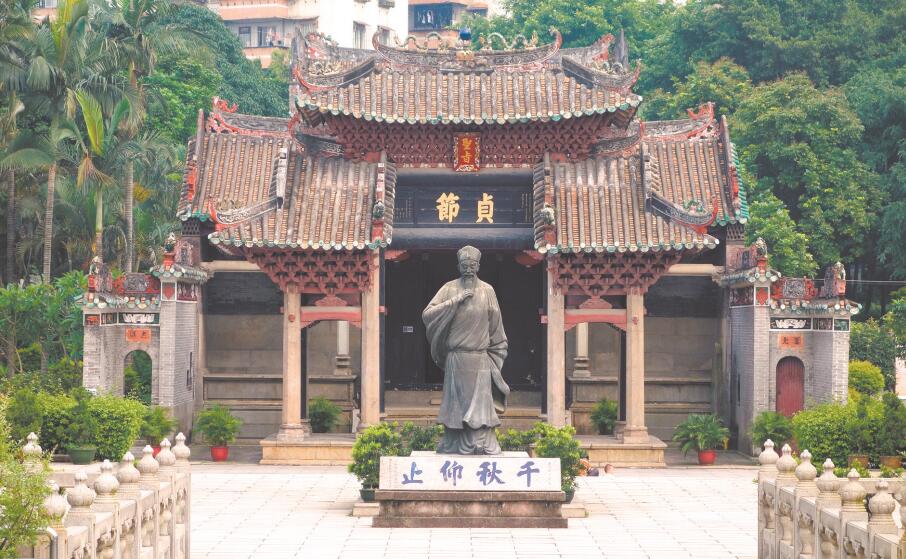
Jiangmen Chenbaisha Ci.
Chen Baisha, whose real name was Chen Yiyuan, was born in 1469. He emerged as a prominent figure during a time when the Lingnan area was often regarded as a cultural backwater compared to the more developed northern regions. His scholarly pursuits and teachings laid the groundwork for the flourishing of Confucian thought in southern China, earning him the title of “the first scholar of Lingnan.” His works emphasized moral integrity, educational reforms, and the importance of personal character, which resonated deeply with the local populace.
The memorial hall was established to honor Chen Baisha’s legacy and to preserve the history of his life and teachings. The site features traditional architecture, including the magnificent Zhenjie Archway, a structure typical of the Ming Dynasty, symbolizing fidelity and virtue. This archway serves as a poignant reminder of the values that Chen Baisha championed throughout his life. The memorial hall showcases exhibitions detailing his biography, philosophical contributions, and an extensive collection of artifacts, including his calligraphy and various historical relics.
The hall is not merely a museum; it is a cultural center that fosters the appreciation of traditional Chinese philosophy and literature. Visitors can engage in various activities, such as calligraphy workshops and cultural performances, which provide insight into the historical context of Chen Baisha’s teachings.
Chen Baisha’s influence extends beyond his lifetime. He was the first scholar from Lingnan permitted to worship at the Confucius Temple in Shandong, a testament to his esteemed status among scholars. His teachings have been a source of inspiration for generations, and the memorial hall serves as a vital link between the past and present, ensuring that his ideals continue to resonate within contemporary society.
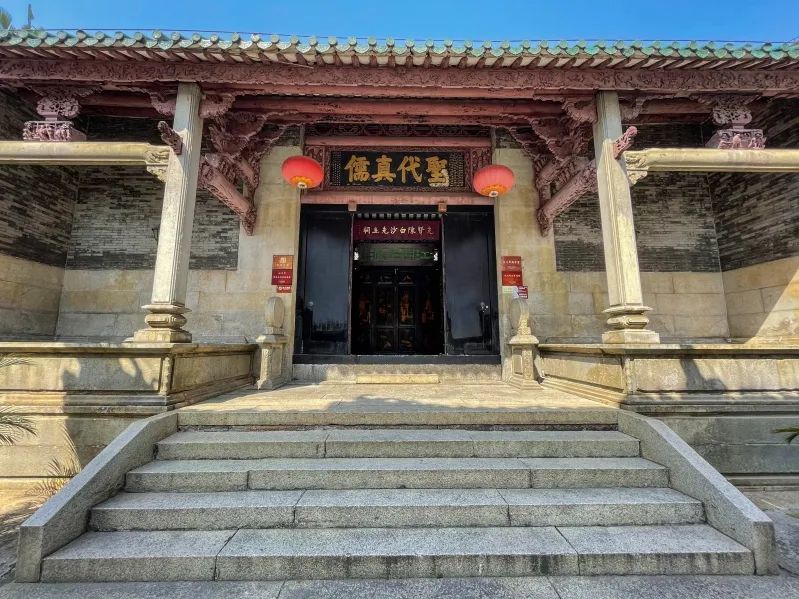
Jiangmen Chenbaisha Ci.
In conclusion, the Jiangmen Chenbaisha Ci stands as a tribute to a significant figure in Chinese history, encapsulating the essence of Lingnan’s cultural heritage. It invites visitors to explore the rich tapestry of philosophy and education that Chen Baisha advocated, making it a must-visit destination for those interested in the intellectual history of China.
Main Highlights: What to See at Jiangmen Chenbaisha Ci
Explore the rich cultural heritage and historical significance of Jiangmen’s Chenbaisha Ci (陈白沙祠), a remarkable site dedicated to one of the region’s most revered scholars, Chen Baisha. Here are the key highlights that make this destination a must-visit:
-
Historical Significance: Chen Baisha, also known as the “First Person of Lingnan,” was a prominent Confucian scholar during the Ming Dynasty. The memorial hall and adjacent structures celebrate his contributions to philosophy and education, marking the site as a pivotal cultural landmark in Jiangmen.
-
Architectural Marvels: The site features traditional Ming architecture, including the intricately designed Zhenjie Archway (贞节牌坊) and the Chenbaisha Temple itself. These structures offer a glimpse into historical building techniques and the aesthetic sensibilities of the era, making them a photographer’s delight.
-
Exhibits and Artifacts: Inside the memorial hall, visitors can explore a collection of artifacts, manuscripts, and displays that detail Chen Baisha’s life, his philosophical teachings, and the impact he had on Lingnan culture. This educational experience is enhanced by bilingual descriptions, although some parts are primarily in Chinese.
-
Interactive Experiences: Engage with local culture through hands-on activities offered at the site, such as traditional calligraphy workshops using the unique Maolong brush, which Chen Baisha is credited with developing. Visitors can also try their hand at traditional rubbing techniques, connecting with ancient Chinese art forms.
-
Scenic Surroundings: The site is surrounded by a serene garden that mirrors the beauty of Jiangmen’s natural landscape. It provides a peaceful retreat for visitors to reflect and enjoy the tranquil environment, adorned with lush greenery and historical relics.
-
Cultural Events: The Chenbaisha Ci often hosts cultural events and activities, particularly during local festivals. These events showcase traditional performances and crafts, allowing visitors to immerse themselves in the local culture.
-
Visitor Information: Open from Tuesday to Sunday, the memorial offers free entry, making it accessible for everyone interested in history and culture. Guided tours are available, and prior booking is recommended to ensure a comprehensive visit.
Visiting Chenbaisha Ci not only enriches your understanding of Chinese history but also provides a unique opportunity to engage with the cultural legacy that continues to influence Jiangmen today. Whether you are a history buff, a culture enthusiast, or simply seeking a peaceful retreat, this site has something special to offer.
Planning Your Visit: A Practical Guide
Practical Guide to Visiting Jiangmen Chenbaisha Ci (陈白沙祠)
Visiting the Jiangmen Chenbaisha Ci, or Chen Baisha Memorial Hall, offers a unique glimpse into the life and legacy of a notable figure in Chinese history. Here’s everything you need to know for a fulfilling visit.
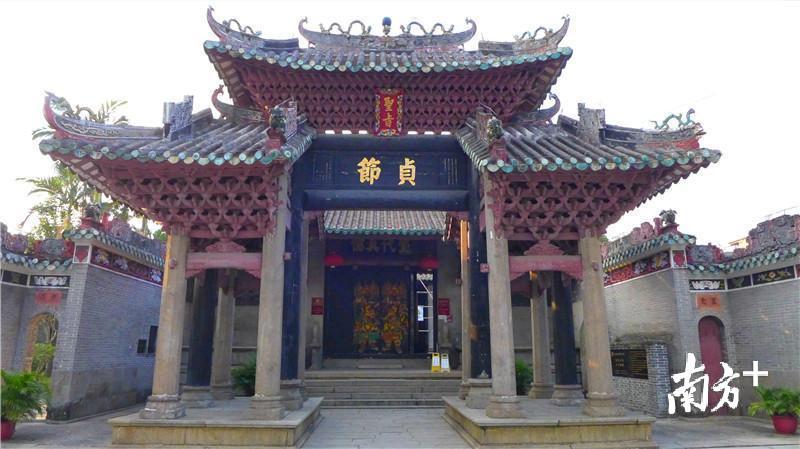
Jiangmen Chenbaisha Ci.
Location and Access
The memorial is situated at 37 West Baisha Avenue, Pengjiang District, Jiangmen, Guangdong Province. It’s easily accessible via public transport or taxi from various points in the city.
Opening Hours
The Chen Baisha Memorial Hall is open from Tuesday to Sunday, operating hours are as follows:
– Morning: 9:00 AM – 11:30 AM
– Afternoon: 3:00 PM – 5:00 PM
Note: The memorial is closed on Mondays and may have adjusted hours during public holidays, so it’s advisable to check ahead before your visit.
Admission Fees
Entry to the memorial is free, making it an excellent destination for travelers looking to explore cultural heritage without spending much.
Guided Tours
Free guided tours are available in Chinese, providing detailed insight into the life of Chen Baisha and his contributions to Confucian philosophy. If you require a guide in English, consider contacting local tour operators in advance, as English-speaking services may not be readily available on-site.
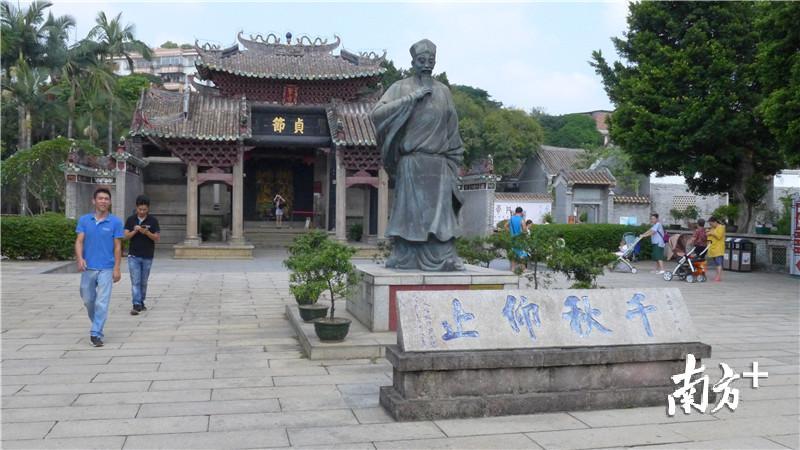
Jiangmen Chenbaisha Ci.
Highlights of the Memorial
- Main Square: Upon entering, you will be greeted by the main square featuring a statue of Chen Baisha and a stele inscribed with his accomplishments.
- Traditional Architecture: The memorial features traditional architectural styles, including a Ming Dynasty “Zhenjie” archway, a testament to the cultural heritage of the region.
- Exhibitions: Inside, you’ll find exhibits detailing Chen Baisha’s life, his philosophical works, and artifacts from his time, which provide a deep understanding of his influence in the Lingnan area.
- Experience Activities: Engage in hands-on activities such as calligraphy using the unique “Mao Long” brush and traditional rubbings. These experiences are available at specific times, so check the schedule when you arrive.
Visitor Tips
- Plan Your Visit: The memorial can be explored in about 1-2 hours. Arrive early to participate in guided tours and enjoy the tranquil surroundings.
- Photography: The site is picturesque, so bring your camera. Just be respectful of any areas where photography may be restricted.
- Local Cuisine: After your visit, explore the nearby eateries offering local delicacies. Jiangmen is known for its seafood and traditional Cantonese dishes.
Getting There
- Public Transport: Buses frequently run to the area from major locations within Jiangmen. Check local schedules for routes.
- Taxi Services: Taxis are widely available and provide a convenient option for reaching the memorial, especially during peak hours when public transport may be crowded.
Nearby Attractions
After visiting the memorial, consider exploring these nearby sites:
– Jiangmen Museum: Just a short walk away, it offers a broader perspective on the region’s history.
– Baihua Mountain: A serene spot for nature lovers, ideal for a leisurely hike or picnic.
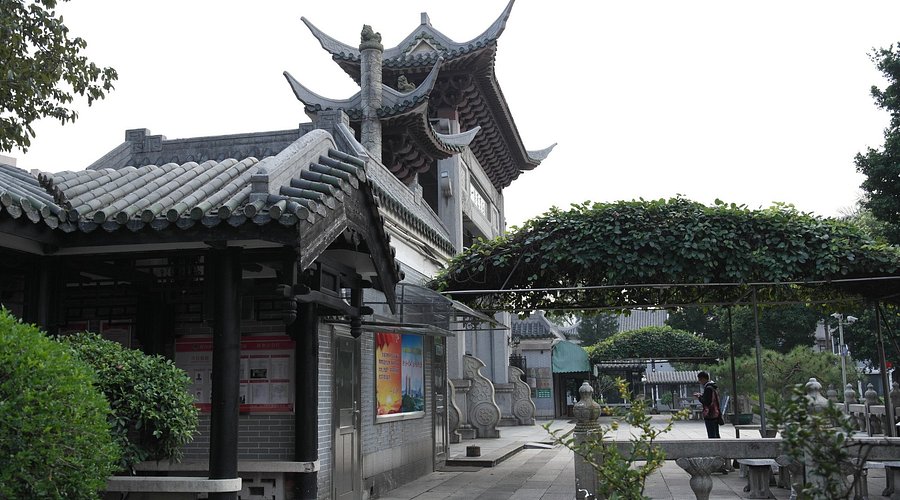
Jiangmen Chenbaisha Ci.
Conclusion
The Chen Baisha Memorial Hall is not just a site for history buffs; it’s a cultural hub offering insights into the philosophical roots of the region and its impact on modern Chinese thought. With free admission and engaging activities, it’s an enriching stop on your journey through Jiangmen.
Tickets, Hours, and Booking
Visiting the Jiangmen Chenbaisha Ci (陈白沙祠) is an enriching experience, and planning your trip is essential to make the most of it. Here’s what you need to know about ticketing and visiting hours:
Admission Information
- Entrance Fee: Entry to the Chenbaisha Ci is free of charge. This makes it an accessible cultural and historical site for all visitors.
Visiting Hours
-
Open Days: The site is open from Tuesday to Sunday. It is closed on Mondays and may have altered hours during public holidays, so it’s advisable to check ahead if you plan to visit on such days.
-
Operating Hours:
- Morning: 9:00 AM to 11:30 AM
- Afternoon: 3:00 PM to 5:00 PM
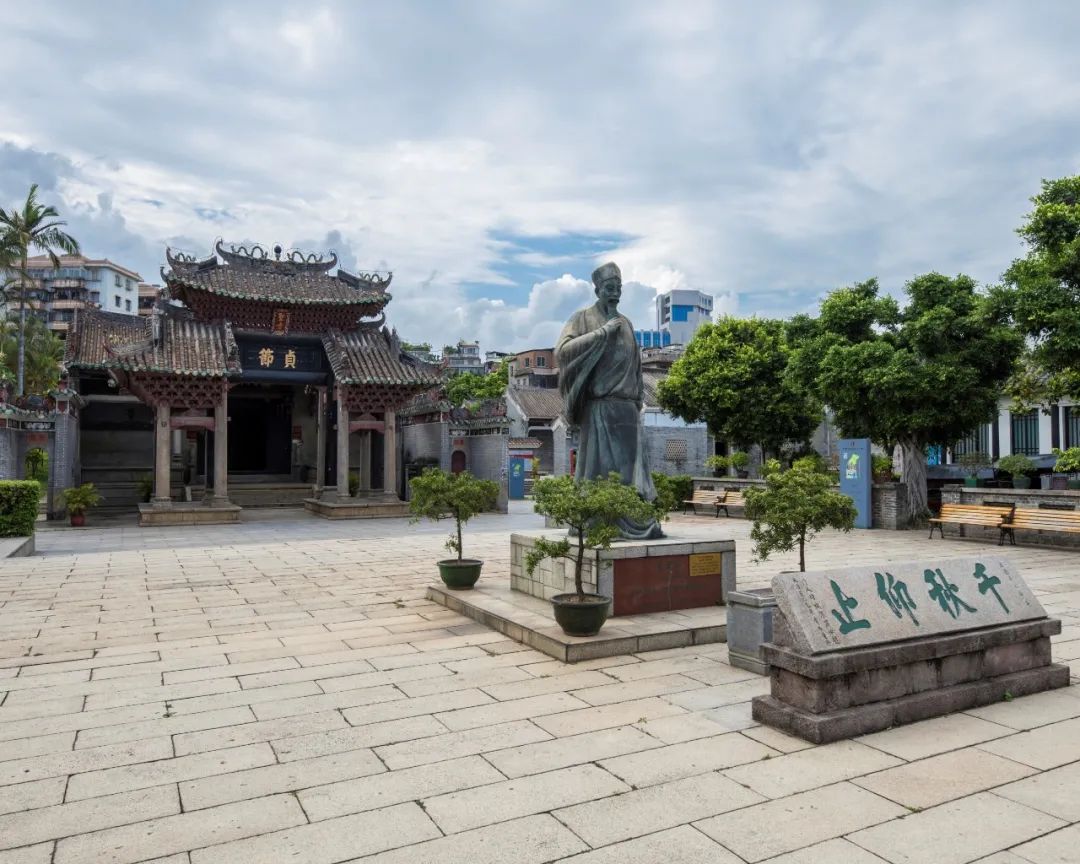
Jiangmen Chenbaisha Ci.
It’s recommended to arrive early to fully enjoy the exhibits and guided tours that are available.
Guided Tours and Activities
-
Guided Tours: The Chenbaisha Ci offers complimentary guided tours during specified times within the operating hours. Reservations can be made either in person at the venue or via phone at 0750-3555447.
-
Experiential Activities: Visitors can participate in various cultural activities, such as calligraphy workshops and traditional arts, which typically require on-site registration. These activities take place:
- Tuesdays through Sundays at 9:30 AM and 3:15 PM.
Location
- The Chenbaisha Ci is located at 37 West Baisha Avenue, Pengjiang District, Jiangmen, Guangdong Province. The venue is easily accessible and situated within a historical context, making it a perfect addition to your travel itinerary.
Make sure to plan your visit accordingly to enjoy the full range of experiences that the Chenbaisha Ci has to offer!
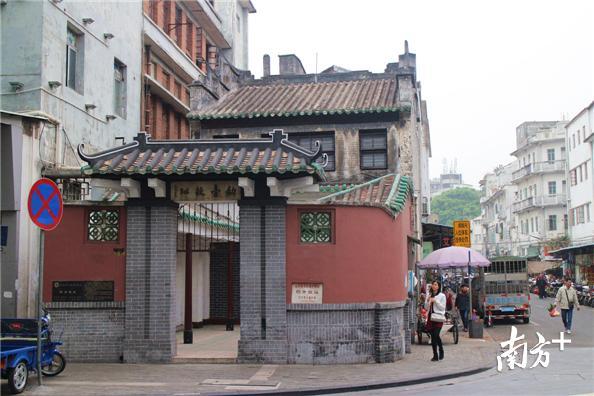
Jiangmen Chenbaisha Ci.
How to Get There
Getting to Jiangmen Chenbaisha Ci (陈白沙祠) is quite straightforward, whether you’re traveling from nearby cities or exploring the broader Guangdong province. Here’s a comprehensive guide to help you navigate the transportation options available.
By Air
The nearest major airport to Jiangmen is the Guangzhou Baiyun International Airport (CAN), located approximately 100 kilometers away. From the airport, you can take a taxi or book a shuttle bus to Jiangmen. The journey by taxi will take about two hours, while shuttle buses may take longer depending on traffic.
By Train
Jiangmen is well-connected by train, making it an easy destination to reach from major cities. The Jiangmen Railway Station offers high-speed train services from Guangzhou, Shenzhen, and Zhuhai:
– From Guangzhou: High-speed trains run frequently, and the journey takes about 1.5 hours.
– From Shenzhen: Expect a travel time of roughly 2.5 hours.
– From Zhuhai: The train ride is approximately 1 hour.
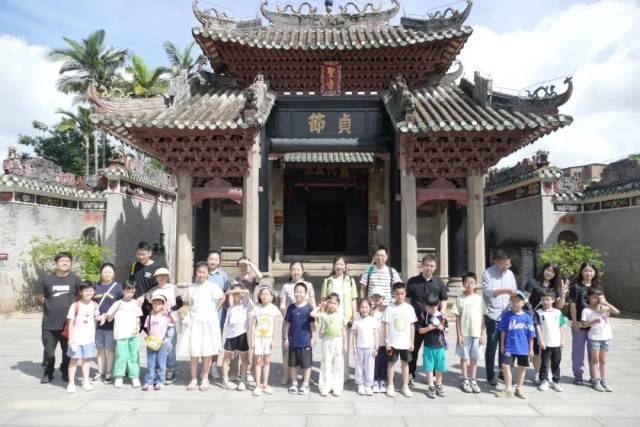
Jiangmen Chenbaisha Ci.
Upon arriving at Jiangmen Railway Station, you can take a taxi or a local bus to reach Chenbaisha Ci, which is about a 15-minute drive away.
By Bus
Jiangmen has several long-distance bus terminals that operate routes from various cities:
– From Guangzhou: Buses depart regularly from the Guangzhou Provincial Bus Station, taking around 2 to 3 hours to reach Jiangmen.
– From Shenzhen or Zhuhai: Buses are available with similar travel times, making it convenient for visitors from these locations.
Once you arrive at the Jiangmen bus station, local taxis or ride-sharing services can take you directly to Chenbaisha Ci.
Local Transportation
Within Jiangmen, traveling to Chenbaisha Ci is easy:
– Taxis: Widely available and reasonably priced, taxis can be hailed from the street or booked via ride-sharing apps.
– Public Buses: Various bus routes connect the city center with Chenbaisha Ci. You can check local bus schedules at the station or use mobile apps for real-time information.
Accessibility
Chenbaisha Ci is located in a relatively accessible area, with clear signage directing visitors. It’s advisable to check the operating hours of the site and any special events that may affect transportation schedules.
Summary
Traveling to Jiangmen Chenbaisha Ci is convenient, whether you’re flying in, taking a train, or traveling by bus. With efficient local transportation options, reaching this historical site is straightforward and enjoyable. Be sure to plan your journey in advance to make the most of your visit!
Local Cuisine and Accommodation
When visiting the Jiangmen Chenbaisha Ci, you’ll find a delightful blend of local cuisine and comfortable accommodation options nearby, enhancing your cultural exploration of this historical site.
Culinary Delights
The area surrounding Chenbaisha Ci offers a variety of dining options that cater to different tastes and preferences. Here are some notable recommendations:
-
Yuan Yang Seafood Street (远洋海鲜食街)
Located just a short distance from the memorial, this bustling seafood street is perfect for those who enjoy fresh, locally sourced seafood. Here, you can indulge in a wide array of dishes, from live seafood to traditional Cantonese preparations. -
True Tofu Shop (真正豆腐坊)
A must-visit for tofu lovers, this eatery specializes in various tofu dishes prepared with authentic techniques. Be sure to try their signature tofu pudding, which is a favorite among locals. -
Hong Garlic Western Restaurant (红蒜头西餐厅)
For a change of pace, this restaurant offers a fusion of Western and Chinese cuisines. Its inviting atmosphere and diverse menu make it a great spot for families and groups. -
Ming Cha Guan (茗茶馆)
This charming teahouse, located within the Chenbaisha Memorial complex, provides a serene setting to enjoy traditional Chinese tea and snacks. It’s an excellent place to relax after exploring the historical site. -
Tao Yuan Ge Korean Cuisine (桃源阁韩国料理)
If you’re in the mood for something different, this Korean restaurant offers a delightful array of dishes, including BBQ options that are particularly popular among visitors.
Accommodation Choices
Finding a comfortable place to stay can greatly enhance your experience in Jiangmen. Here are a few recommended accommodations that cater to various budgets:
-
Jiangmen Phoenix Hotel (江门凤凰酒店)
A well-rated hotel located conveniently close to the Chenbaisha Memorial, this establishment offers modern amenities and comfortable rooms. It’s ideal for travelers looking for a balance of comfort and accessibility. -
Hanting Hotel (汉庭酒店)
This budget-friendly option provides clean and cozy accommodations with essential amenities. It’s a great choice for solo travelers or families looking to save on lodging while still enjoying a pleasant stay. -
The Westin Jiangmen (江门威斯汀酒店)
For those seeking luxury, The Westin offers an upscale experience with spacious rooms, excellent dining options, and full-service amenities. Its location can also facilitate easy access to local attractions. -
Yinghe Garden Hotel (盈和花园酒店)
Situated in a peaceful area, this hotel features beautiful gardens and well-appointed rooms. It’s perfect for visitors wanting a quiet retreat after a long day of sightseeing.
Conclusion
Whether you’re savoring the local flavors or relaxing in a comfortable hotel, the area around Jiangmen Chenbaisha Ci provides ample options to make your visit memorable. Enjoy the rich culture and history while indulging in some of the best culinary experiences Jiangmen has to offer.
Frequently Asked Questions
Frequently Asked Questions
1. What are the opening hours for Jiangmen Chenbaisha Ci?
The memorial is open from Tuesday to Sunday, from 9:00 AM to 5:00 PM. It is closed on Mondays.
2. Is there an admission fee to visit the Chenbaisha Memorial?
Admission to the memorial is free of charge, allowing visitors to explore its historical significance without any cost.
3. How can I get a guided tour at the Chenbaisha Memorial?
Free guided tours are available from Tuesday to Sunday. You can either book in advance by calling +86 0750-3555447 or make an on-site reservation upon arrival.
4. What should I expect to see at the memorial?
Visitors can explore various attractions, including the traditional Zhenjie Archway, the main memorial hall dedicated to Chen Baisha, and exhibits detailing his life and philosophical contributions.
5. Are there any special activities or workshops available?
Yes! The memorial offers unique experiences such as calligraphy using the Maolong brush and traditional rubbings of historical artifacts. These activities usually take place on weekends—check in advance for schedules.
6. Is the Chenbaisha Memorial accessible for individuals with disabilities?
While the memorial has made efforts to accommodate visitors with disabilities, it is advisable to inquire directly at the site for specific accessibility options.
7. Can I take photos inside the memorial?
Photography is generally allowed, but be respectful of any signs indicating restrictions, particularly in sensitive areas or during guided tours.
8. What is the best time to visit the Chenbaisha Memorial?
The best time to visit is during the cooler months from October to April, when the weather is pleasant for walking and exploring the outdoor areas. Early mornings or late afternoons are also ideal for avoiding crowds.
Final Thoughts on Your Trip
Visiting the Jiangmen Chenbaisha Ci is not merely an excursion; it’s an enriching journey into the heart of Chinese history and culture. As you stroll through the serene grounds, surrounded by the beautifully preserved architecture and lush gardens, you’ll find yourself immersed in the legacy of Chen Baisha, a revered philosopher and scholar of the Ming Dynasty. His contributions to Confucianism and the promotion of traditional values resonate throughout the exhibits, offering insights into the philosophy that shaped the region.
Engagement with interactive experiences like calligraphy and traditional printing adds a personal touch, allowing visitors to connect with the cultural heritage in a hands-on way. The peaceful atmosphere, punctuated by the whispers of history, makes it an ideal spot for reflection and appreciation of the past.
For anyone seeking to understand the rich tapestry of Jiangmen’s heritage, a visit to the Chenbaisha Ci is undeniably rewarding. Whether you’re a history enthusiast, a culture lover, or simply in search of a tranquil retreat, this site promises a memorable experience that honors the profound legacy of one of Guangdong’s most significant figures. Embrace the opportunity to explore, learn, and be inspired by the wisdom of the ages in this beautiful setting.
